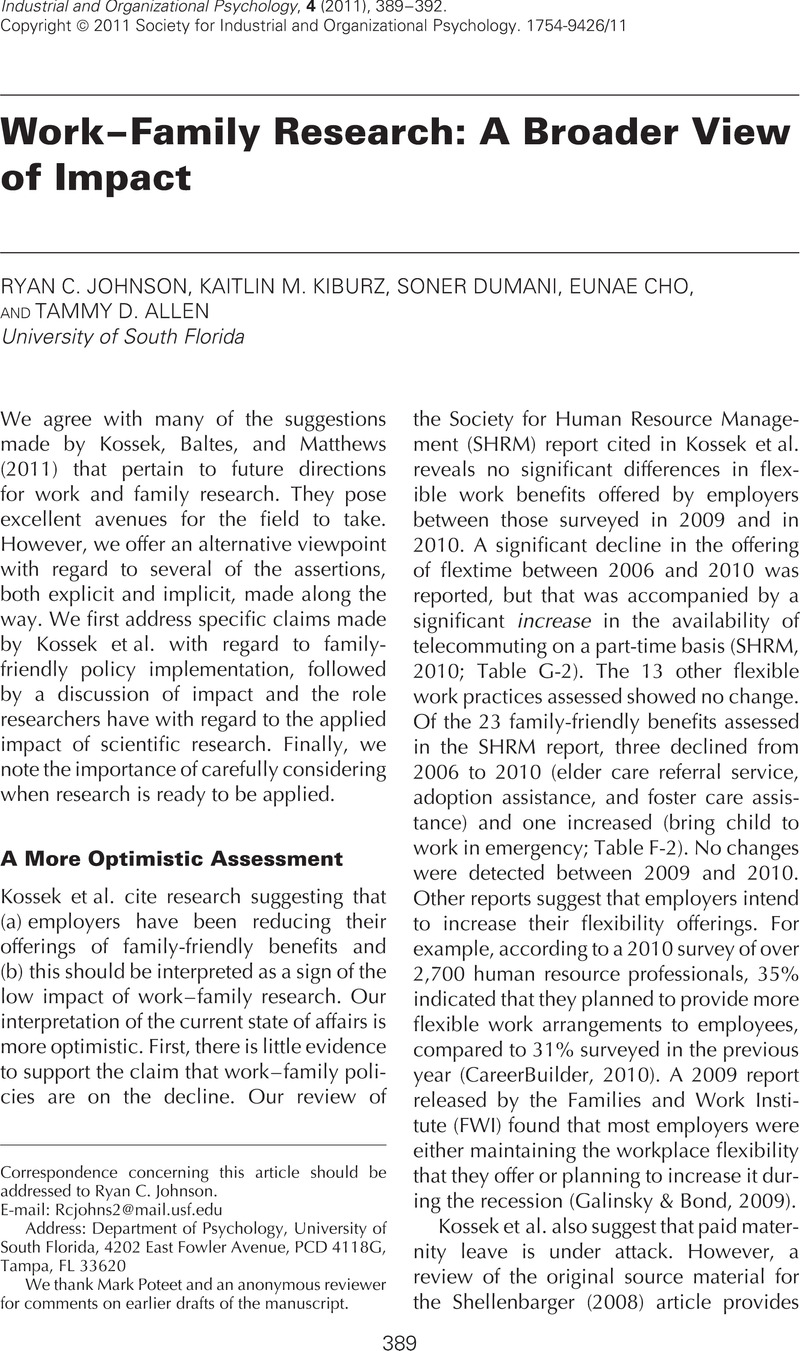Crossref Citations
This article has been cited by the following publications. This list is generated based on data provided by Crossref.
Kossek, Ellen Ernst
Baltes, Boris B.
and
Matthews, Russell A.
2011.
Innovative Ideas on How Work–Family Research Can Have More Impact.
Industrial and Organizational Psychology,
Vol. 4,
Issue. 3,
p.
426.
Raza, Basharat
Ali, Muhammad
Naseem, Khalida
Moeed, Abdul
Ahmed, Jamil
Hamid, Muhammad
and
Aparicio, Sebastian
2018.
Impact of trait mindfulness on job satisfaction and turnover intentions: Mediating role of work–family balance and moderating role of work–family conflict.
Cogent Business & Management,
Vol. 5,
Issue. 1,
p.
1542943.



